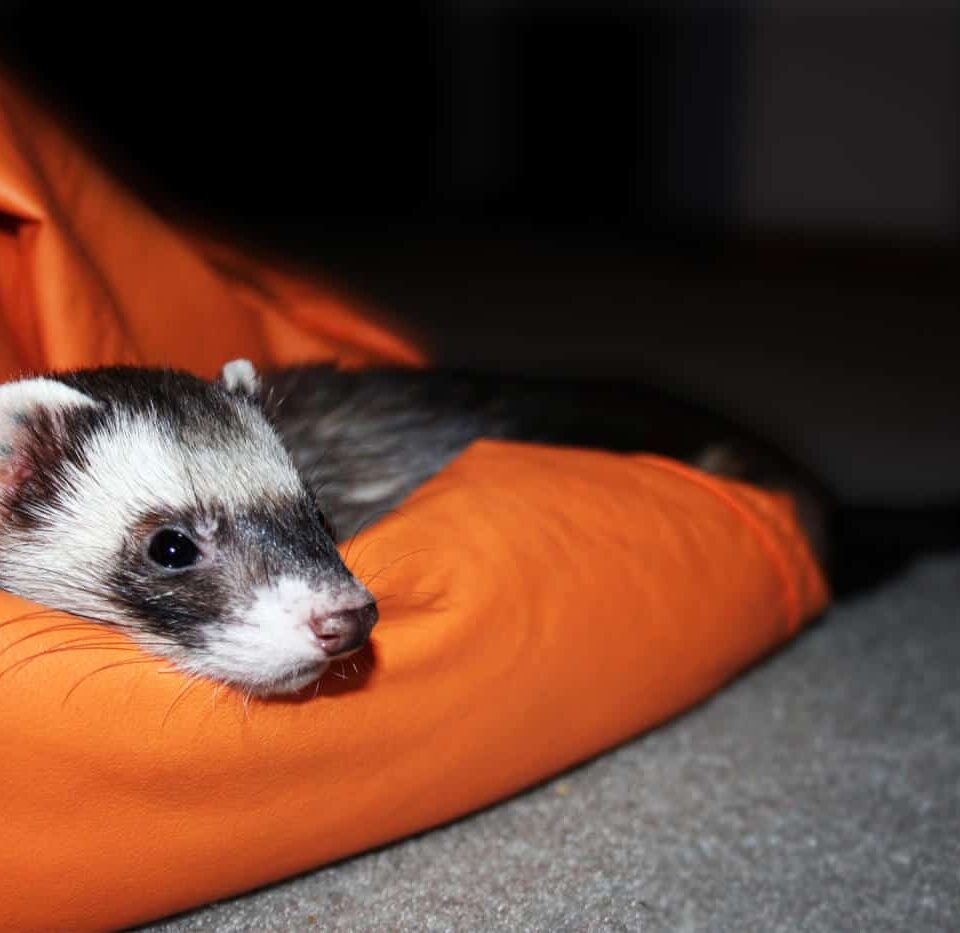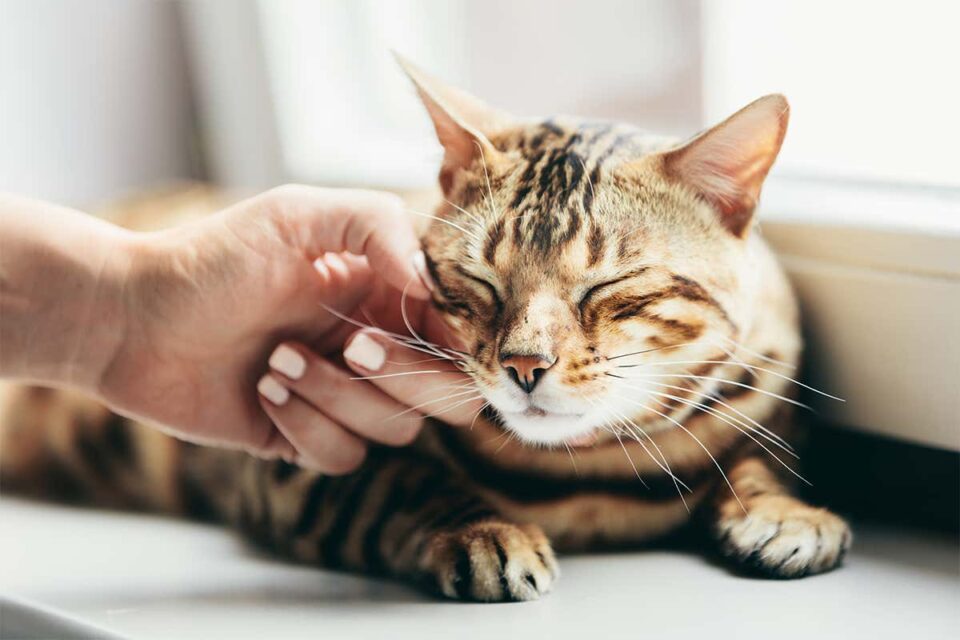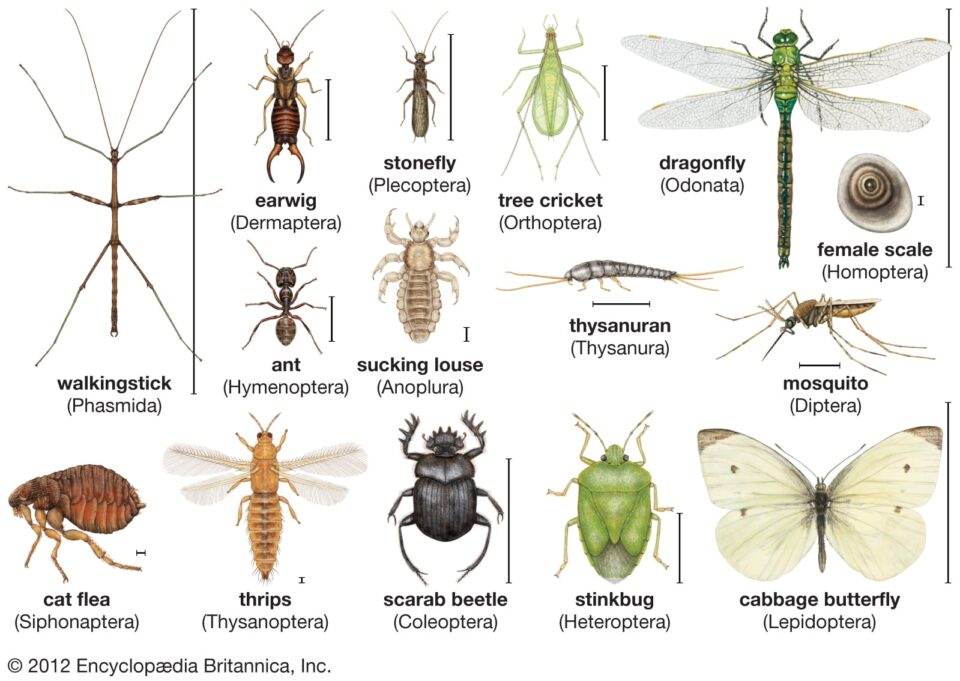Ferrets are popular pets. They are small, playful, and intelligent. When deciding to bring home a pet, including a ferret there need to be special preparations made. In this post, we’ll cover all the basics of caring for a ferret.
The ferret will need to have a suitable home, food, and will need to be cared for daily. They sleep most of the day but are active when they are awake.
The average ferret lives for around 7 years.
Are ferrets good pets?
If you’re thinking of deviating from the norm of pets and taking in ferrets, there’s nothing to worry about. Ferrets are social animals, and they can make great pets. While they can be kept as single pets they do well with others.
Caring for Ferrets – What Kind of Environment Do They Need?
Ferrets are curious by nature and they have a lot of energy. They need a comfortable home, but they also need room to move around. They should be allowed out of their cage, but they will still need supervision.
The home can be a dangerous place for a ferret if they are not watched. They need a safe enclosure when you are not home. Their cage should have a couple of different layers and needs to be chew proof.
The cage should be easy to clean. Ferrets enjoy digging tunnels, so they should have room to dig and a hammock to lay in. Solid floors and ramps will prevent injuries to their foot.
Ferrets can be taught to use a litter box. It is best to keep this box in the corner. If the ferret is in a large area they should be a litter box on each layer. Shredded newspaper or paper pellets are better than the clay litter. Some ferrets eat the clay.
If the ferret is going to be free to roam the home, some steps need to be taken to make the home safe. All cleaning supplies and other chemicals should be put away. Ferrets like to open doors and cabinets so be sure to install a childproof lock.
Close openings to tight spaces such as under the washer machine so the ferret will not get trapped. These animals will play with small objects so keep keys and other valuable items away.
Ferrets enjoy digging. A box filled with shredded paper is inexpensive and will keep the ferret busy. A plastic PVC pipe can also make a good tunnel as long as it is wide enough for the ferret to get in and out of. They also like balls and small toys. There are several commercial toys designed for the enjoyment of ferrets.
The environment of the ferret should have climate control. They are not able to cool down in temperatures above 75 degrees. High temperatures could be deadly. The ideal setting for the ferret is between 65 and 68 degrees.
Diet: What do Ferrets Eat?
Ferrets are carnivores and their body are not able to digest carbohydrates. They should have a diet that is made up of protein and fats. There are some good commercial ferret foods on the market.
Look for food that has a high amount of protein. Do not give the ferrets fruits, vegetables, any dairy products, and any foods with sugar. If a commercial diet is used there are no additional supplements that must be given.
Be sure to ask the vet for recommendations. Do not give the ferret cat or dog food.
Caring for a Ferret: Grooming a Ferret
Nail trimming is needed to prevent injury. The frequency will depend on how fast the ferret’s nails grow. The nails may need to be cut two to four times a month.
The ears need to be checked and cleaned often. Too much wax in the ears can lead to an infection. If there is black wax in the ear, see the vet. This can be a sign of mites or an infection.
Ferrets do not have to bathe often. They should be washed around once a month unless told by a vet. If the ferret is cleaned too often, the natural oils from the skin can be removed and this can lead to skin issues.
Preventing Medical Issues
The ferret needs shots including distemper and rabies yearly. Distemper is a disease that is common in dogs. It is transmitted with body fluids but can also be in the air. While it is rare, it can be serious.
This disease leads to loss of appetite, sneezing, coughing, trouble breathing, and eye discharge. There can be changes in behavior as well as seizures. If the ferret gets this disease it will need constant care. Ferrets can also get the human version of the flu.
Ferrets can get heartworm disease and prevention should last year-round. Speak to the vet about a prevention schedule.
Diarrhea is a common problem. If the ferret has inflammatory bowel disease long-term treatment will be needed. If left untreated the animal can develop lymphoma. The ferret will need a GI track tract test given by a vet. Diarrhea can be due to food.
They can get it from carbs, sugars, and there may be parasites in the food. This condition needs to be taken seriously.
Gastrointestinal blockages are common when a ferret ingest a foreign body. Older ferrets can get hairballs and cause this blockage. Signs that the ferret ingested something besides food including lack of energy, anorexia, no stool passage, diarrhea, and vomiting. countries.
Surgery needed to remove the blockage. Do not allow the ferret to have access to items made of foam or soft rubber. Laxatives can be given during shedding season to prevent hairballs.
Ferrets can have dental issues. Their teeth should be cleaned on a regular basis and the teeth should be check by the vet annually. If the ferret has bad breath, teeth discoloration, drooling, or other issues contact the vet right away.
Summary
Ferrets made good companions, but they are prone to mischief. Caring for ferrets can be tedious due to their curious nature. Feel free to ask any additional questions in the comments.






